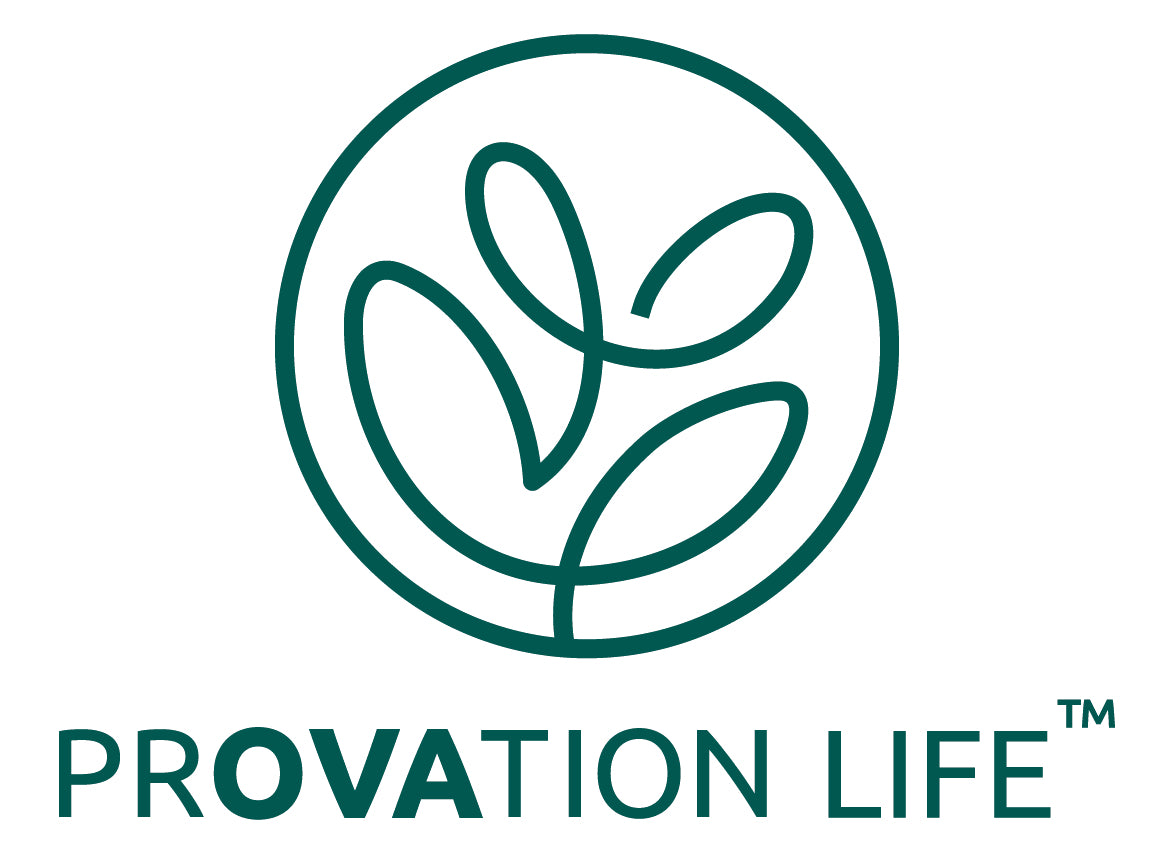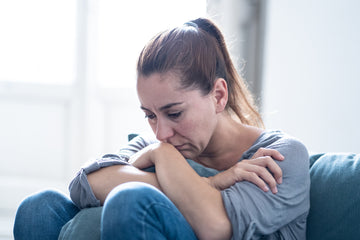Polycystic ovarian syndrome (PCOS) is a common endocrine disorder affecting up to 15% of reproductive-aged women worldwide (1). The condition is characterized by hormonal imbalances that lead to irregular menstrual cycles, ovarian cysts, and elevated androgen levels, which can cause acne, hirsutism, and hair loss. Women with PCOS are also at increased risk of developing obesity, type 2 diabetes, and cardiovascular disease (2).
Are Women With PCOS at a Higher Risk of Mental Health Challenges?
In addition to the physical symptoms associated with Polycystic Ovary Syndrome, women with PCOS are also at higher risk of mental health issues. A recent meta-analysis found that women with PCOS have a 2.5-fold increased risk of depression and a 1.6-fold increased risk of anxiety compared to women without the condition (3). This highlights the importance of addressing mental health concerns in women with PCOS.
One possible explanation for the increased risk of mental health issues in women with PCOS is the impact of hormonal imbalances on the brain. Androgens, which are elevated in women with PCOS, have been shown to affect brain function and may contribute to mood disturbances (4). Additionally, insulin resistance, which is common in women with PCOS, has also been linked to changes in brain function and an increased risk of depression (5).
However, mental health issues in women with PCOS may also be related to the psychological impact of the condition. PCOS can cause distressing physical symptoms, such as acne and hirsutism, which can affect body image and self-esteem (6). Furthermore, the unpredictable menstrual cycles associated with PCOS can make it difficult for women to plan their lives, which can lead to feelings of anxiety and stress (7).
The importance of addressing mental health concerns in women with PCOS cannot be overstated. Depression and anxiety can have a significant impact on quality of life, and may also have negative effects on physical health outcomes (8). Therefore, it is essential that women with PCOS receive comprehensive care that includes both physical and mental health components.
Mental Health Management Options for Women with PCOS
Treatment options for mental health issues in women with PCOS include counseling, cognitive-behavioral therapy, and medication. Additionally, lifestyle interventions such as exercise and stress reduction techniques may also be helpful in improving mental health outcomes in women with PCOS (9).
Here are six things that can be done to improve mental health in PCOS:
- Seek professional help: It's essential to seek professional help from a mental health specialist like a psychologist or psychiatrist to address mental health issues related to PCOS.
- Exercise regularly: Exercise is known to be an effective way to manage mental health issues like anxiety and depression. Regular exercise can also help manage symptoms of PCOS, including weight gain and insulin resistance.
- Follow a healthy diet: Eating a balanced diet can help manage the symptoms of PCOS and promote good mental health. A diet rich in whole grains, fruits, vegetables, and lean protein can help improve both physical and mental health. A healthy dose of the right supplements can prove to be very beneficial as well.
- Manage stress: Stress can exacerbate the symptoms of PCOS and worsen mental health issues. Finding ways to manage stress like meditation, yoga, or deep breathing exercises can be helpful.
- Join a support group: Joining a support group for women with PCOS can help provide emotional support and reduce feelings of isolation and loneliness.
- Take care of overall physical health: Taking care of physical health is important for improving mental health. Regular checkups with a primary care physician and gynecologist can help manage PCOS symptoms and improve overall well-being.
PCOS is a complex condition that affects both physical and mental health. Women with PCOS are at increased risk of depression and anxiety, and it is essential that these issues are addressed as part of comprehensive care. By recognizing the importance of mental health in women with PCOS, we can improve outcomes and quality of life for these individuals.
References:
- Teede HJ, Misso ML, Costello MF, et al. Recommendations from the international evidence-based guideline for the assessment and management of polycystic ovary syndrome. Hum Reprod. 2018;33(9):1602-1618.
- Barber TM, Franks S. Obesity and polycystic ovary syndrome. Clin Endocrinol (Oxf). 2020;92(4):293-300.
- Dokras A, Stener-Victorin E, Yildiz BO, et al. Androgen Excess- Polycystic Ovary Syndrome Society: position statement on depression, anxiety, quality of life, and eating disorders in polycystic ovary syndrome. Fertil Steril. 2018;109(5):888-899.
- Goldstein BI. Sex Hormones and Mood in the Menstrual Cycle and Postpartum Period. Harv Rev Psychiatry. 2019;27(2):121-132.
- McElroy SL, Kotwal R, Malhotra S, et al. Are mood disorders and obesityNelson EB, Keck PE, Nemeroff CB. J Clin Psychiatry. 2004 May;65(5):634-51
- Joshi RD, Sawant N, Mayadeo NM. How Common are Depressive-Anxiety States, Body Image Concerns and Low Self-Esteem in Patients of PCOS? J Obstet Gynaecol India. 2022 Feb;72(1):72-77
- Nillni YI, Rohan KJ, Mahon JN, Pineles SL, Zvolensky MJ. The role of anxiety sensitivity in the experience of menstrual-related symptoms reported via daily diary. Psychiatry Res. 2013 Dec 15;210(2):564-9
- Cooney LG, Dokras A. Depression and Anxiety in Polycystic Ovary Syndrome: Etiology and Treatment. Curr Psychiatry Rep. 2017 Sep 20;19(11):83
- Wang Z, Groen H, Cantineau AEP, van Elten TM, Karsten MDA, van Oers AM, Mol BWJ, Roseboom TJ, Hoek A. Effectiveness of a 6-Month Lifestyle Intervention on Diet, Physical Activity, Quality of Life, and Markers of Cardiometabolic Health in Women with PCOS and Obesity and Non-PCOS Obese Controls: One Size Fits All? Nutrients. 2021 Sep 28;13(10):3425












